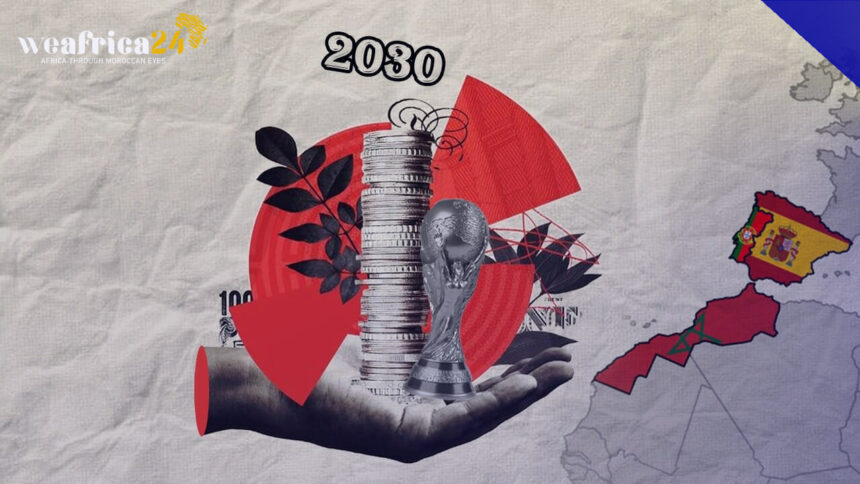After nearly 30 years of anticipation, the Moroccan Royal Palace announced on Wednesday that Morocco will host the 2030 World Cup, in a joint bid with Spain and Portugal.
The Royal Palace statement expressed King Mohammed VI’s great joy at the Moroccan people’s announcement that the International Federation of Association Football (FIFA) unanimously selected the Morocco-Spain-Portugal joint bid to host the 2030 FIFA World Cup.
The decision was hailed as an acknowledgment of Morocco’s special status among nations. King Mohammed VI congratulated Spain and Portugal on this achievement and reaffirmed Morocco’s commitment to work closely with the relevant authorities in the host countries.
A Long-Standing Moroccan Project
Economic expert Mansaf Alyazghi stated “Morocco has been a candidate to host the World Cup since 1994. Securing the 2030 World Cup is a confirmation of the country’s recent achievements in sports and soccer in the past 15 years, as demonstrated in the recent Qatar World Cup.”
Regarding the joint bid, the sports policy expert emphasized that “Morocco has been applying to host the World Cup since it had only 24 teams. With the increasing number to 32 and now 48 teams, it became clear that it is difficult for larger countries to host the World Cup with such several teams. Thus, a joint bid became inevitable.”
He also stressed that “Morocco is a winning card for Spain and Portugal due to its African depth and its proximity to Europe. Morocco has also constructed large stadiums even after failing to host the 2010 World Cup.”
Economic Returns Expected
The figures from previous World Cup hosts demonstrate significant economic returns. Reports indicate that Qatar is expected to attract around 40 million tourists in the coming years as a result of hosting the World Cup.
Qatar has already hosted 1.2 million visitors from around the world to watch the tournament, featuring 32 teams, according to the organizing committee.
Regarding the direct financial returns from the tournament, reports state that Qatar has generated $8 billion. Long-term economic returns between 2022 and 2035 are predicted to reach $9.9 billion, in addition to expectations of a 3.4% growth in the Qatari economy in 2022-2023.
In contrast, South Africa, the first African country to host the World Cup, recorded significant economic returns in terms of job creation, with approximately 400,000 people finding employment during the tournament.
This positively impacted tax revenues, which increased to around $20 billion and were added to the tourism sector’s revenues.
Sports Infrastructure Development
Regarding the sports stadiums that will host the World Cup and the improvements to be made, Fouzi Lekjaa, the president of the Royal Moroccan Football Federation, stated in a radio interview that “Moroccan cities that will host the 2030 World Cup, six of which have been selected, include Rabat, Tangier, Casablanca, Agadir, Marrakech, and Fez. However, the decision on which city will host the opening match has not been finalized.”
Lekjaa added, “Hosting the 2030 World Cup will benefit Morocco in all sectors, especially in terms of exceptional infrastructure and other sectors such as health and the economy. Excitement will increase in the years leading up to the World Cup.”







